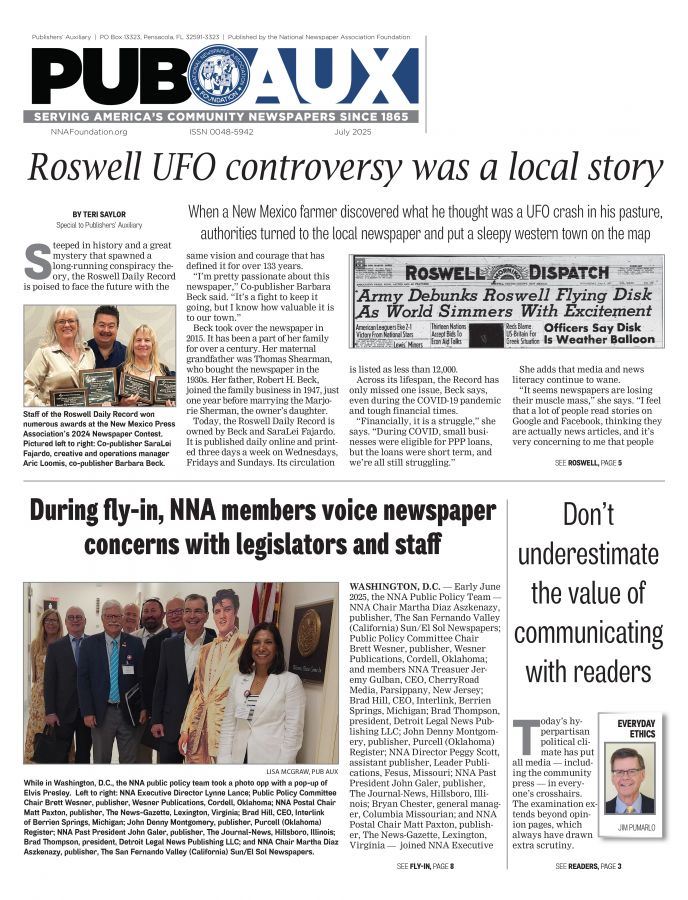College students’ perspectives on politics, bipartisanship
May 4, 2018
By Mady Johnston
NNAF News Fellow | Alvernia University
As the November midterm elections draw closer and political divisions continue to guide Americans’ conversations and news feeds, there is both a desire for bipartisanship and a sense of political exhaustion. In times like these, the often-ignored voices of young voters can provide a fresh perspective on how politics hold influence on their lives.
Arelis Colon, 22, is a senior communications major at Alvernia University and is a self-identified liberal. A long-time resident of Reading, PA, Colon has seen first-hand that economic standing can influence a person or a community’s political activity. “When you’re to the point where you have to hustle to survive, you don’t have the time to worry about ‘what’s going to benefit me more?’ or ‘who should I vote for?” Colon said.
The political atmosphere at Alvernia is similar. As a liberal arts college, Alvernia University encourages its students to engage in civil discord. However, classes, extracurricular activities and other academic stressors can make students not want to bear the extra weight of political conversations. Still, students, like Colon, are aware of how politics have an influence in their everyday lives.
“We see close friends no longer become friends,” Colon said. “I’ve never stopped being friends with people because of differences in politics, but I have tried to tread lightly because of stuff that some people have said or done [that are politically driven.]”
She’s not alone. According to a 2016 Pew Research poll, most Americans don’t enjoy engaging in political dialogue. Forty-six percent of total individuals polled said that they found talking with people they disagree with is “stressful and frustrating”, and 61 percent of people found that they had less in common when discussing politics with someone across the aisle. As a result, most people would be reluctant to engage in politics with their peers for fear of cutting ties.
James Wyatt III, 22, a senior criminal justice major at Alvernia, and a self-identified conservative, is aware of how politics can divide people, citing the strain on his relationship with his girlfriend after Donald Trump was elected president because of the fear of losing key friendships.
“I also found a decent number of Republican friends, including myself, don’t post a lot of political stuff online, because we don’t want that to get in the way of our friendships,” Wyatt said.
Most students interviewed said that they did not believe that bipartisanship in government and society was possible, at least not right now, citing the influence of mass media and the human condition of stubbornness.
Ironically, the institution causing such a stir is also filled with people working to achieve bipartisan discourse. U.S. representatives and senators are joining bipartisan movements, such as the Problem Solvers Caucus and Climate Solutions Caucus, in the hopes of promoting bipartisan legislation on many issues.
Rep. Leonard Lance, R-NJ, is a member of the Problem Solvers Caucus, a subgroup of bipartisan political organization No Labels, with Rep. Josh Gottheimer, D-NJ. Lance’s efforts to represent the citizens of New Jersey sometimes involves going against the views of his fellow Republicans.
“I’ve certainly felt immense pressure from certain party leaders to vote a certain way on key legislation this term, such as on healthcare reform and on the new tax law.” But the representative maintains that he will continue to push for what is most beneficial, long-term for the people of New Jersey.
On the state level, Sen. Judy Schwank, D-11th district, and Rep. Mark Gillen, R-128th district, are two Pennsylvania lawmakers pushing for bipartisanship by maintaining strong relationships with their peers from both parties and working together to push for fair legislation that will benefit the commonwealth.
The exhaustion of partisan politics for young people, however, is not lost on these representatives. In a written statement, Rep. Mark Gillen said he has faith in the influence of young voters.
“I believe that if these young adults felt more involved with the system, understood how their choices could significantly influence society, and felt connected to the individual(s) running for office, they would become more excited about the incredible opportunity that informed voting offers,” he said.
Schwank has said that she is working with Republican and Democratic constituents to pass Pennsylvania SB 501, a bipartisan bill that if passed, would take away and deny guns for individuals who have threatened partners or have protection-from-abuse orders against them.
Despite discomfort discussing politics, college students do agree on a few things. When asked what political issue matters the most to them, they overwhelmingly cited gun reform. Some believe in strengthening background checks, while others want a change in the culture and dialogue on guns, but the desire for gun safety is mutual. Almost everyone was also in favor of increasing mental health awareness, decreasing stigma and advocating for better services.






